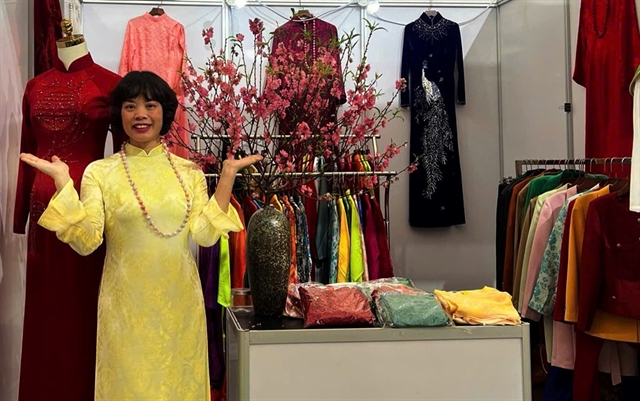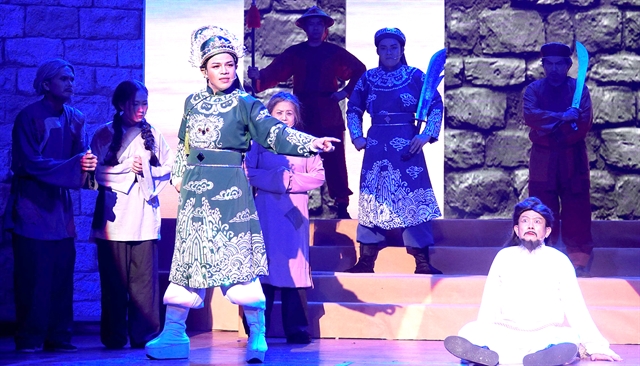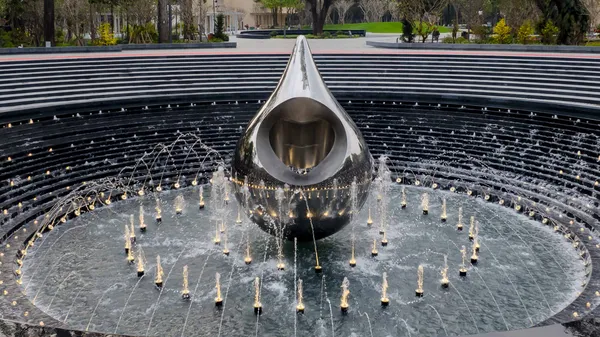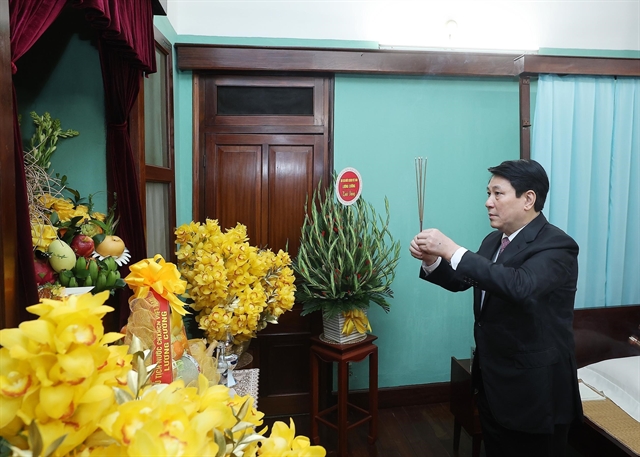 Life & Style
Life & Style

.jpeg)
|
| Hàn Mặc Tử cải lương by Vũ Luân Stage has been embraced by the audience. Photo nld.com.vn |
HCM CITY - The cải lương (reformed theatre) stage in HCM City is enjoying a vibrant resurgence as a wave of newly restaged classical operas draws large audiences back to the theatre.
Recent months have seen the revival of many timeless cải lương works such as Đời Cô Lựu (Ms. Lựu's Life), Khách sạn Hào Hoa (Hào Hoa Hotel), Người Ven Đô (Farmers of the South), Hồ Nguyệt Cô hoá cáo (The transformation of Hồ Nguyện Cô), Lan và Điệp (Lan and Điệp), and Nàng Xê Đa (Ms. Sita).
The return of these classic pieces, once the pride of the cải lương stage, is not only a nostalgic nod to a golden era, but also breathes new life into the traditional art form.
Noteworthy examples include Hàn Mặc Tử (Hàn Mặc Tử) by Vũ Luân Stage and Lan và Điệp by a troupe led by People's Artist Thanh Ngân.
Under the experienced direction of People's Artist Trần Ngọc Giàu, these updated versions reflect careful staging and have earned both critical acclaim and strong box office returns.
One of the most striking improvements is in the stage design and music.
Directors are blending traditional aesthetics with modern touches, preserving the soul of cải lương while giving young performers room to reinterpret iconic roles.
Beyond the state-run Trần Hữu Trang Theatre, independent stages such as Sen Việt, New Cải lương Đại Việt, Chí Linh - Vân Hà, Vũ Luân, Thanh Ngân, Kim Ngân, and Thiên Long are proving to be fertile ground for young talents.
Actors like Minh Trường, Nhã Thy, Hoàng Hải, Nguyễn Hùng Vương, Võ Ngọc Huyền, Biện Thuy, Như Ý, Trọng Hiếu, Diệp Duy, and Sơn Minh are making their mark through roles made famous by past generations.
Meritorious Artist Võ Minh Lâm, who won the 30th Mai Vàng Award for his role as Bảy đờn in Người Ven Đô, remarked: “This is a rare opportunity. These classics have historical weight, what matters is how we breathe new life into the characters with a modern lens.”

|
| Cải lương as a unique art form, simultaneously folk and refined, emotionally resonant and visually captivating. Photo sggp.org.vn |
Platform for young directors
The revival of classical operas is also a valuable training ground for young directors to hone their craft and assert their creative voices.
Veteran artists like People's Artist Trần Ngọc Giàu, Meritorious Artist Hoa Hạ, Meritorious Artist Chí Linh, Meritorious Artist Kim Phương, and Meritorious Artist Lê Nguyên Đạt have remained committed to the goal of “reviving cải lương through its classical scripts.”
Their approaches incorporate cinematic storytelling, traditional and modern dance, and reinterpretations that maintain the cải lương spirit while evolving its expressive language.
However, restaging these plays is no easy feat.
“You need deep knowledge of literary scripts, historical context, and past performance styles, alongside an understanding of contemporary audiences. The challenge lies in condensing and refreshing without losing the essence of cải lương,” Meritorious Artist Ca Lê Hồng noted.
People's Artist Trần Minh Ngọc described cải lương as a unique art form, simultaneously folk and refined, emotionally resonant and visually captivating.
He believes the most viable path forward is to creatively renew the classics, empower younger generations, and reconnect with broader audiences.
According to experts, for this momentum be sustained long term, the support of cultural management agencies is vital.
From funding productions and organising performances in districts, schools, and industrial zones to crafting outreach campaigns, institutional backing will be key to reaching new audiences.
Director Võ Hoàng Phương, who recently staged Hồ Nguyệt Cô hoá cáo, shared: “This was a major learning curve. The play has been performed many times by legendary artists, so I had to study previous versions carefully. The essential challenge is to preserve the soul and core message.”
Meanwhile, Hùng Vũ, the youngest director involved in reviving Ngàn năm tình sử (A millennium of love stories), noted: “The original script is vast and rich with classical literature and historical depth. I opted for a more accessible narrative style, weaving in dance and music to attract younger audiences. Innovation doesn’t mean distortion, it’s about honoring the foundation while evoking fresh emotional connections from age-old tales.” - VNS




